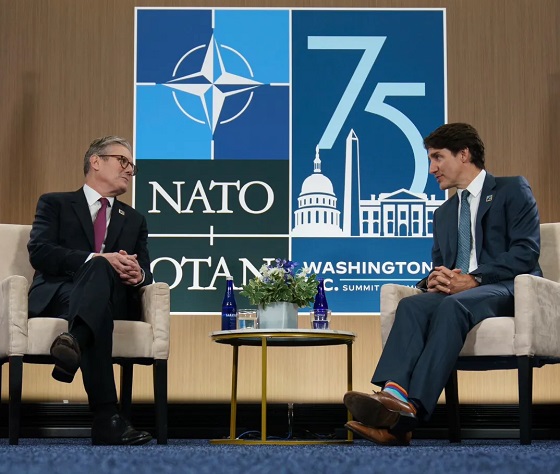International
Slaughter of Christians in Nigeria shows what happens when governments turn a blind eye

From LifeSiteNews
Over 50,000 Christians have been killed in Nigeria since 2009, but media and global leaders insist the persecution is caused by grazing disputes and ‘climate change.’
Christians in Nigeria have faced sporadic persecution since the 1950s, but the past 25 years have seen a wave of violence that is swiftly becoming a slow-motion genocide. Despite that, the international community has for the most part turned a deliberate blind eye on the weekly killings; when pressed for comment, everything from conflicts over grazing land to climate change have been cited as the real reasons behind the ongoing persecution.
Persecution of Christians in Nigeria began to spike after 1999, when 12 northern states adopted Sharia law; the rise of the terrorist group Boko Haram in 2009 marked a dramatic escalation. Famously, Boko Haram kidnapped hundreds of schoolgirls in 2014. Christian girls were targeted for forced conversion and marriage to Muslim fighters; 87 of the girls are still cited as “missing” 11 years later.
In addition to Boko Haram, attacks on Christians are carried out by the Islamic State West Africa Province and radicalized Fulani herdsman. According to one Nigerian NGO, over 50,000 Christians have been killed since 2009 alone – and not because of “climate change.”
“It is true that worsening drought and shrinking grazing lands are pushing Fulani herders further south – encroaching on the farms of Christian communities – and that resource pressure may amplify rural tensions,” Anja Hoffman, executive director of the Observatory on Intolerance and Discrimination Against Christians in Europe told me, adding:
However, while these environmental stresses help explain population movements, they do not account for the intent and brutality of the violence against Christians. The carnage – church burnings, kidnappings, mass killings – goes far beyond ordinary drift over pasture. Far from accidental consequences of migration, victims are often explicitly identified as Christians by assailants who spare neither the elderly nor the children.
Indeed, Hoffman noted that the ongoing situation in Nigeria is perilous. “While Nigeria generally affords more religious freedom than many countries, violence in specific regions has led to a shocking number of Christian deaths, with more faithful killed here than in all other countries combined,” she said.
“According to the latest Open Doors World Watch List, 3,100 Christians were killed and 2,830 Christians were kidnapped in Nigeria in 2024, far more than other countries in the same year. Attacks continue to spread southward from the Muslim-majority north, displacing families, destroying homes, burning churches and schools, and creating a humanitarian crisis. Many survivors now live in camps for internally displaced persons.”
The truth about the persecution of Christians in Nigeria is that it is coming from Muslims and Muslim groups. “According to Christian relief organisations in the country, the violence stems primarily from Islamic militant groups, such as Boko Haram and ISWAP (Islamic State West Africa Province), who seek to wipe out the Christian presence in the region,” Hoffman explained. “Radicalized Fulani herdsmen militias also participate, and have recently carried out horrific attacks including burning Christians alive in their homes. Christians living in northern states governed by Sharia law also endure legal discrimination and social marginalization, often treated as second-class citizens.”
The reason that this persecution is ongoing is because the government often allows it to happen. “A key factor in this ongoing crisis is impunity,” Hoffman told me. “Government and security services frequently fail to respond. Although President Bola Tinubu’s 2023 election raised hopes for stronger protection, meaningful change has not materialised. Security forces remain under-resourced, prosecutions are rare, and many local authorities deny a religious motive, making justice elusive.”
These atrocities, Hoffman says, “demand global Christian solidarity,” including:
- Raise awareness: Correct inaccurate narratives – emphasizing that the violence is not merely ethnic or environmental but driven by explicit religious targeting.
- Call out bias in secular media: When reports (such as the recent ZDF story) reduce the violence to “climate activism” or land disputes, Christians should challenge these simplifications and direct others to credible sources that highlight the religious dimension.
- Support advocacy efforts: Back petitions, letters, and campaigns demanding international pressure for protection, displacement relief, and justice.
The campaign to “Bring Back Our Girls” may have ended years ago – but not all of the girls are home, and the persecution against Nigerian Christians has only increased. Solidarity is surely the least that we can do.
illegal immigration
$4.5B awarded in new contracts to build Smart Wall along southwest border
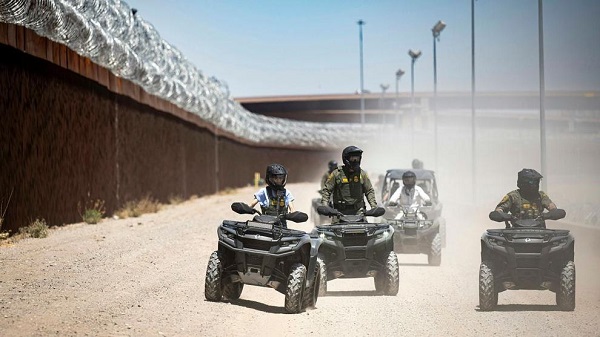
Homeland Security Secretary Kristi Noem rides an ATV along the U.S.-Mexico border wall in El Paso, Texas, on April 28, 2025. Photo: Tia Dufour / U.S. Department of Homeland Security
From The Center Square
By
New contracts to add 230 miles of barriers, nearly 400 miles of technology
Roughly $4.5 billion in contracts have been awarded to expand border wall construction, including adding advanced technological surveillance along the southwest border.
Ten new construction contracts have been awarded through the U.S. Department of Homeland Security and U.S. Customs and Border Protection to add hundreds of miles of Smart Wall in California, Arizona, New Mexico and Texas.
“For years, Washington talked about border security but failed to deliver. This President changed that,” CBP Commissioner Rodney Scott said. “The Smart Wall means more miles of barriers, more technology, and more capability for our agents on the ground. This is how you take control of the border.”

Scott has championed advancing a Smart Wall border security system for years. A border security system is far more than a wall, he has told The Center Square, it’s an ecosystem.
The system encompasses steel and waterborne barriers, patrol roads, lights, cameras, advanced detection technology, including towers and aerostats, to provide Border Patrol agents with a range of tools to detect and interdict illegal activity.
CBP has published an interactive map to educate the public about the Smart Wall system. The map highlights areas of the 1,954-mile U.S.-Mexico border where wall construction has been completed, where border wall panels or waterborne barriers are under construction, where contracts have been awarded for proposed projects in the design phase or early construction, and planned construction areas that haven’t yet been awarded contracts.
Prior to Jan. 20, 2025, 702 miles of existing barriers had been constructed of primary wall and 76 miles of secondary wall, according to CBP data.
The new plan includes implementing barrier technology along 532 miles of the border where no barrier exists because of unfavorable terrain or remote location. It also includes deploying 550 miles of technology throughout previously constructed barriers, CBP says. Specific areas are also being built out in regions where contracts were previously canceled by the Biden administration.
In California, $483.5 million in taxpayer funding was awarded to BCCG Joint Venture for the Diego 1 Project to construct nine miles of new Smart Wall and 52 miles of system attributes in the San Diego Sector.
An additional $574 million was awarded to Fisher Sand & Gravel Co. for the El Centro 1 Project to construct eight miles of Smart Wall and install 63 miles of system attributes in the San Diego and El Centro sectors.
In California and Arizona, $199.5 million was awarded to Barnard Spencer Joint Venture for the Yuma 1 Project to construct 60 miles of system attributes in the Yuma Sector.
In Arizona, nearly $607 million was awarded to BCCG for the Tucson 1 Project to construct 23 miles of new secondary border wall and 66 miles of system attributes in the Tucson and Yuma sectors.
In New Mexico, $155.1 million was awarded to BCCG for the El Paso 1 Project to replace seven miles of old dilapidated barrier fencing in the Santa Teresa Area of Responsibility with a new Smart Wall. BCCG will also complete 22 miles of system attributes in the El Paso Sector in New Mexico.
Also in the El Paso Sector in New Mexico, Barnard Spencer Joint Venture was awarded nearly $579 million for the El Paso 2 Project to construct 23 miles of new Smart Wall and 81 miles of system attributes.
In the El Paso Sector in far west Texas, BCCG Joint Venture was awarded $850.4 million for the El Paso 3 Project to construct 42 miles of new primary Smart Wall, six miles of new secondary border wall and 46 miles of system attributes.
In Texas, BCCG Joint Venture was awarded $565 million for the Del Rio 1 Project to construct 22 miles of new primary Smart Wall, replace two miles of old barrier wall, and deploy 40 miles of waterborne barrier system in the Eagle Pass Area of Responsibility in the Del Rio Sector.
BCCG was also awarded $364.3 million for the Del Rio 2 Project to construct 10 miles of new primary Smart Wall, 23 miles of waterborne barrier system, and install 10 miles of system attributes in Eagle Pass.
BCCG was also awarded $96.1 million for the Rio Grande Valley Waterborne Barrier Project to deploy 17 miles of waterborne barrier in the Rio Grande River, south of Brownsville in Cameron County in the Rio Grande Valley Sector.
Another $550 million worth of contracts was also awarded to support Smart Wall construction. Additional construction and contracts are expected.
Funding for the projects comes from the “One Big Beautiful Bill,” which President Donald Trump signed into law. It also includes some fiscal year 2021 border wall appropriations that were frozen during the Biden administration.
Waivers were also issued by DHS Secretary Kristi Noem to expedite construction of nine miles in the San Diego Sector and 30 miles in the El Paso Sector in New Mexico. Both sectors were inundated with record high illegal traffic during the Biden administration.
International
Melania Trump quietly reunites children divided by Ukraine war
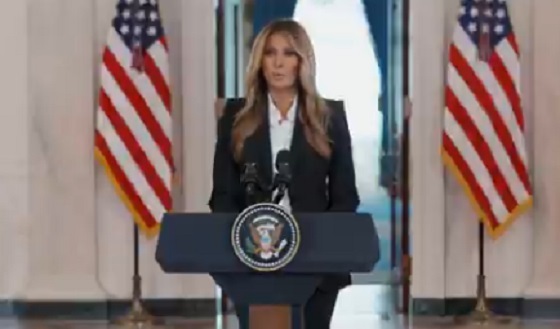
Quick Hit:
Melania Trump announced Friday that she’s maintained an “open channel” with Russian President Vladimir Putin, leading to the reunification of eight Ukrainian children with their families. The effort began with a personal letter she sent to Putin in August and has since expanded into coordinated talks between her representatives and Russian officials.
Key Details:
- During remarks in the White House grand foyer Friday, Melania Trump said, “A child’s soul knows no borders,” as she announced the reunification of eight Ukrainian children separated by the ongoing war.
- The first lady said she first reached out to Putin in a letter delivered during President Trump’s August 15 summit in Alaska, adding that “much has unfolded since President Putin received my letter.”
- Trump confirmed that “several backchannel meetings and calls” have since taken place, and that her representative has been working directly with Putin’s team to help connect displaced children with their families.
Announcement from First Lady Melania Trump @FLOTUS @WhiteHouse pic.twitter.com/zaOIhK8uAe
— Office of the First Lady (@FirstLadyOffice) October 10, 2025
Diving Deeper:
In an unexpected and emotional statement from the White House grand foyer Friday, Melania Trump revealed that her private outreach to Russian President Vladimir Putin resulted in the reunification of eight Ukrainian children with their families.
Trump said her involvement began with a letter to Putin, hand-delivered during President Trump’s August 15 summit in Alaska. “Much has unfolded since President Putin received my letter,” she said, describing how the correspondence evolved into a continuing dialogue between her office and Russian officials. “Since then, President Putin and I have had an open channel of communication,” she explained, adding that “several backchannel meetings and calls” have taken place to facilitate humanitarian coordination.
According to Trump, eight children have already been returned to their families within the past 24 hours — including one girl reunited with relatives across the Russia-Ukraine border — and “plans are already underway” for additional reunifications.
Trump framed the effort as part of her broader humanitarian mission to protect children affected by conflict. “A child’s soul knows no borders,” she said, emphasizing that political boundaries should never prevent the return of children to their loved ones.
She added that her representatives have been working directly with Putin’s team to locate and repatriate displaced minors. Several of the children involved in the latest effort were taken across borders during heavy fighting in eastern Ukraine, while others had been separated from relatives due to the chaos of war.
While details of the behind-the-scenes coordination remain limited, Trump’s announcement highlights the humanitarian possibilities that still exist even amid strained relations between the two nations.
-

 Business1 day ago
Business1 day agoThe Grocery Greed Myth
-

 COVID-192 days ago
COVID-192 days agoTamara Lich says she has no ‘remorse,’ no reason to apologize for leading Freedom Convoy
-
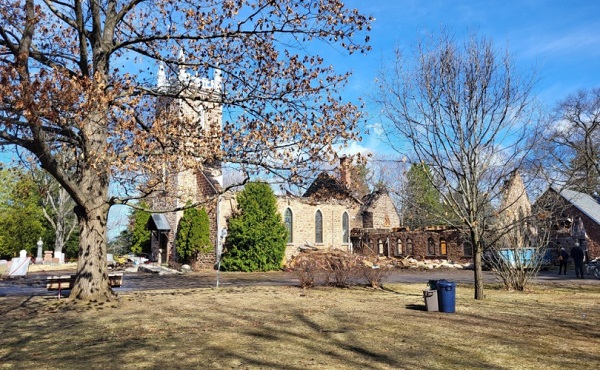
 Crime2 days ago
Crime2 days agoCanada’s safety minister says he has not met with any members of damaged or destroyed churches
-

 Business2 days ago
Business2 days agoTrump Warns Beijing Of ‘Countermeasures’ As China Tightens Grip On Critical Resources
-

 International2 days ago
International2 days agoTrump gets an honourable mention: Nobel winner dedicates peace prize to Trump
-

 Business1 day ago
Business1 day agoTax filing announcement shows consultation was a sham
-

 Frontier Centre for Public Policy9 hours ago
Frontier Centre for Public Policy9 hours agoCanada’s Democracy Is Running On Fumes
-
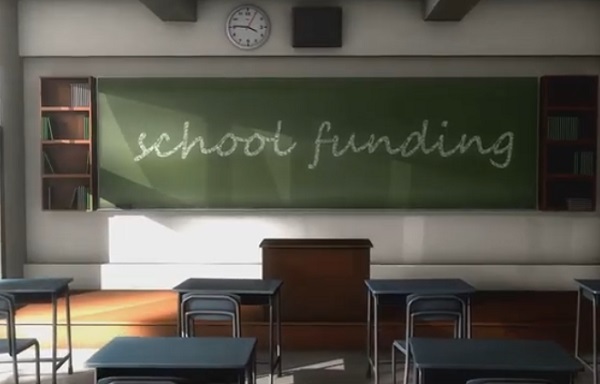
 Education9 hours ago
Education9 hours agoClassroom Size Isn’t The Real Issue


